Back in December 2014, I first wrote about Common Core, Career and Technical Education and its impact on the Special Needs students. What’s the latest for this population group in Post-Secondary education? Let’s find out in today’s article. Below is the link to the 2014 article:
https://www.commoncorediva.com/2014/12/03/tech-thursday-career-techcommon-core-and-alternative-education/
Also related to this is the CCSS alignment of IEPs: https://www.commoncorediva.com/2015/03/10/rmt-ccsss-present-to-special-needs/
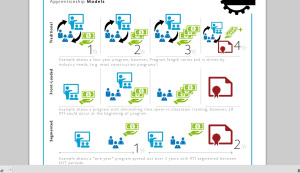
An Education Webinar from June 30th:
Just a couple of days ago, the Gates Foundation backed “Education Week” hosted a free educational webinar about post secondary life for those with special needs. The following information is from links suggested as credible resources during the webinar. Credible for us, the anti CCSS Warriors, means we can use the resources to know where to look to access the CCSS Machine’s grasp for our students with special needs.
Education Week’s article, “Advocates Hope Common Core Will Rub Off” shares this criticism that not enough transitional planning is going on for those with special needs shifting from high school to post secondary education. While that may or may not be true, it’s the source EW used which is skewed towards CCSS/CTE (AIR, American Institutes of Research) offering the criticism. “”Many plans lack depth, breadth, and personalization; have low expectations for students with disabilities; do not include plans for postsecondary education; and do not map out how the K–12 education system should connect to other systems, such as postsecondary, vocational rehabilitation, workforce training, or independent services,” says a 2013 report from the American Institutes for Research. “As a result, many students with disabilities leave high school with amorphous and generic plans that fail to address their individual circumstances or interests.” To access the entire article: http://www.edweek.org/ew/articles/2015/06/04/advocates-hope-common-core-will-rub-off.html?intc=EW-DPCT15-TOC
From that 2013 AIR Report (be sure to click on the image to enlarge it):
To access the 2013 AIR Report: Improving College and Career Readiness for Students with Disabilities
NASDSE, the National Association of State Directors of Special Education, Inc.:
This group based in VA, is supporting the ‘Every Child Achieves Act’ (aka: HR5 as the re-authorization of the NCLB law which in turn gave us Race to the Top and Common Core). Here’s an excerpt from their letter of support to Sen. Lamar Alexander, “NASDSE commends you for including in your bill language that only allows up to one percent of all students – those who have the most significant cognitive disabilities – to take an alternate assessment based on alternate achievement standards. This cap is critical to ensuring that students with disabilities will remain on track to graduate from high school prepared for postsecondary education and/or a career. We therefore urge that you oppose any efforts during the bill’s markup that would raise or eliminate this cap.” You can read the entire letter, http://www.nasdse.org/LinkClick.aspx?fileticket=hLXguhdRtoM%3d&tabid=36
Also available from the NASDSE, is a 2004 data collection document which spells out what ADDITIONAL data is collected on each student with special needs. You can read it: SpecNeedsDataCollect
NASDSE has been around since 1938, but its most recent set of goals includes more post secondary success for the students served. Here’s a short paragraph you may find interesting, “The continued collaboration with our key partners, including the National Association of State Title I Directors and the Council of Administrators of Special Education brings us closer to common language in serving and improving outcomes for all students and remains a priority for NASDSE, as is collaboration with the U.S. Department of Education’s Office of Special Education Programs, in order to provide input regarding implementation of the State Systemic Improvement Plans, Results Driven Accountability and the role of the National Center for Systemic Improvement (NCSI) in providing direct support to our members.”
The Board of Directors are all from various states across America and their Public Instruction departments. AZ, VA, MT, NH, UT, CA, GA, and SD. See: http://www.nasdse.org/AboutNASDSE/BoardofDirectors/tabid/406/Default.aspx (*NOTE; from here you can explore more about the organization via the left hand menu)
If you’re curious about the funding each state receives for educating special needs students, NASDSE and AIR (as in the group above) partnered together back in 2010 and published a report about this topic. See: NASDSEAIR
To find out all the NASDSE’s corporate sponsors and other groups involved: http://www.nasdse.org/ResourceLinks/tabid/59/Default.aspx
Pacer’s National Parent Center on Transition and Employment, http://www.pacer.org/transition/:
From their website, “Founded in 1977, PACER Center was created by parents of children and youth with disabilities to help other parents and families facing similar challenges. PACER Center enhances the quality of life and expands opportunities for children, youth, and young adults with all disabilities and their families so each person can reach his or her highest potential. PACER operates on the principles of parents helping parents, supporting families, promoting a safe environment for all children, and working in collaboration with others.” It is a non profit organization based in MN. It is funded by the U.S. Dept. of Education’s Office for Special Education Programs (*NOTE: you can find this fact at the bottom of every page on the website highlighted in blue)
From the Pacer’s 2014 published resources, a ‘new’ way to look at career paths for those students ready to go from high school to post secondary education. Here’s an interesting couple of paragraphs to read. When reading, consider the context of Career Pathways and/or Career and Technical Education (which are CCSS aligned), “To be able to acquire these skills and effectively change jobs, and plan and manage multiple careers over one’s life time, career development skills are important. The process by which youth get to know their strengths and interests, learn how different jobs connect with those interests, and build these career planning and management skills is called career development.”
From their website, you can find out that “Think College is a project of the Institute for Community Inclusion at the University of Massachusetts Boston. The Think College initiatives are funded by grants from the National Institute on Disability and Rehabilitation Research, the Administration on Developmental Disabilities, the Office of Special Education Programs, and the Office of Postsecondary Education.”
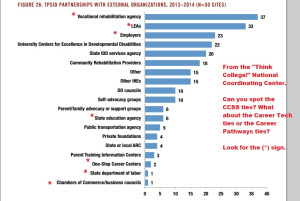
If you’d like to see the CCSS tie between the Standards and Boston College, http://frontrow.bc.edu/program/braun/
For more proof of BC’s CCSS stance:
Closing:
If you need more evidence of how intrusive the CCSS Machine is being in regard to our families and students with special needs, please let me know. If you have such evidence or wish to provide a real life account of your family’s saga with Career and Tech Education or Common Core, please let me know.
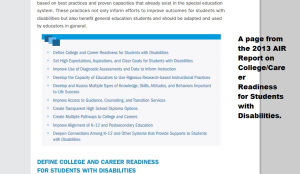
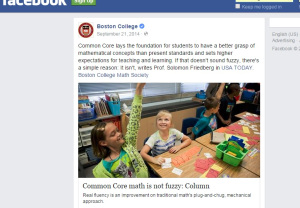
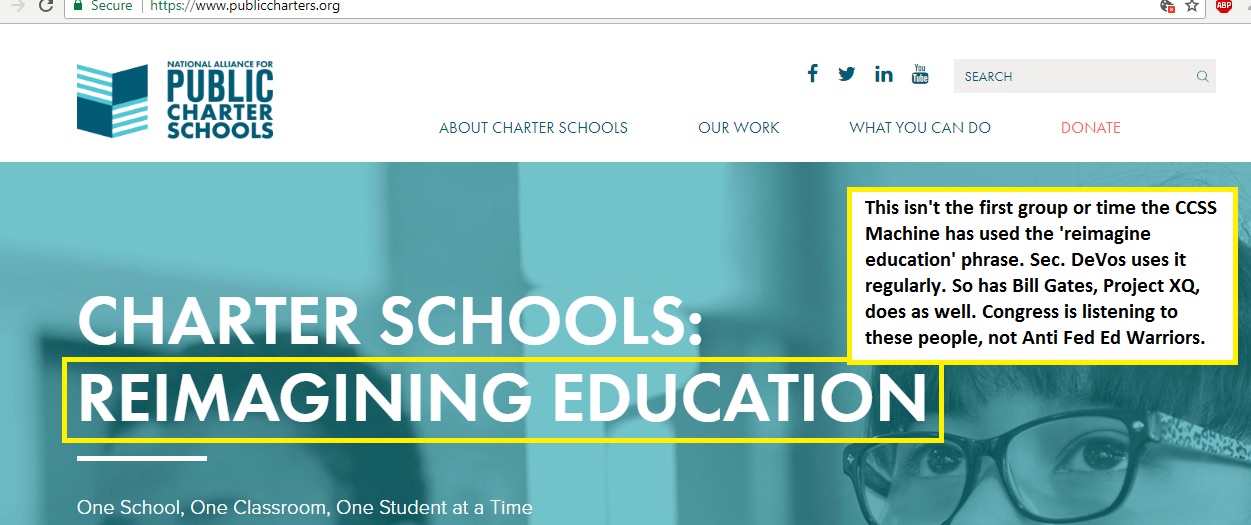

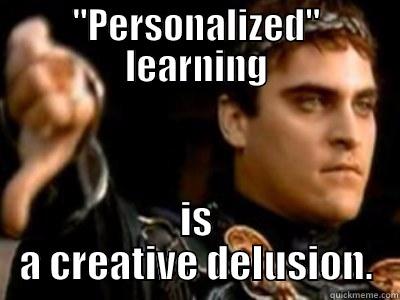
Thank you for all the info that you share.
Thank you for your support. Please let me know if there is any way else in which I may help you fight this war against our nation via education.